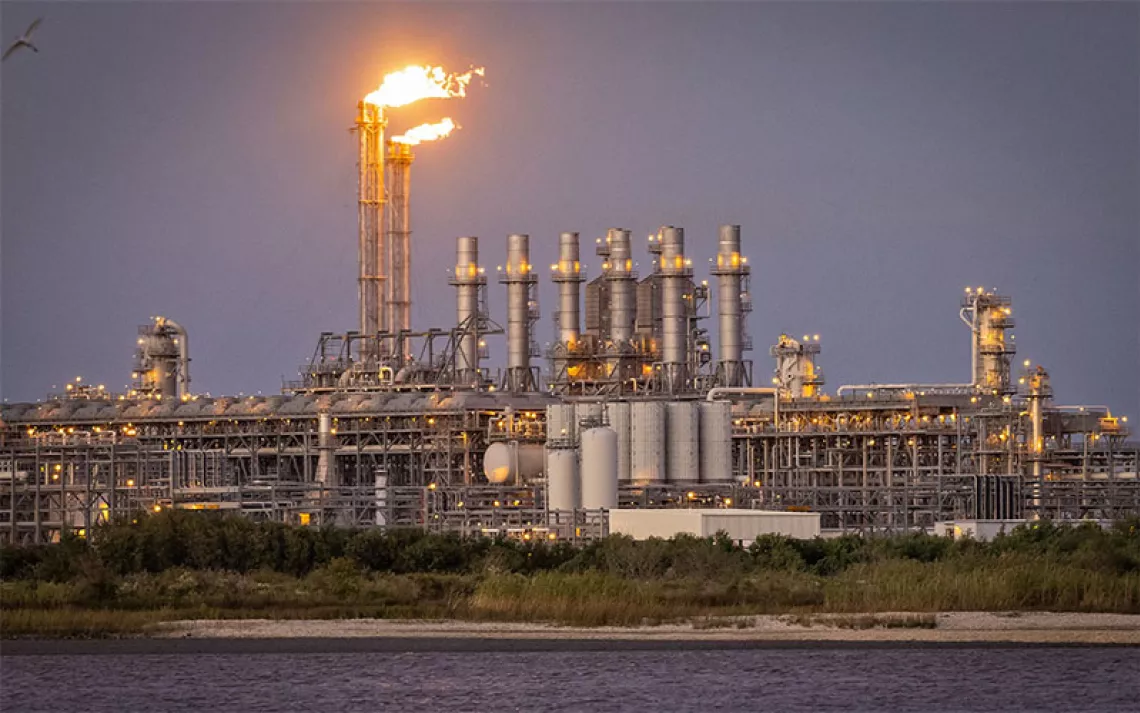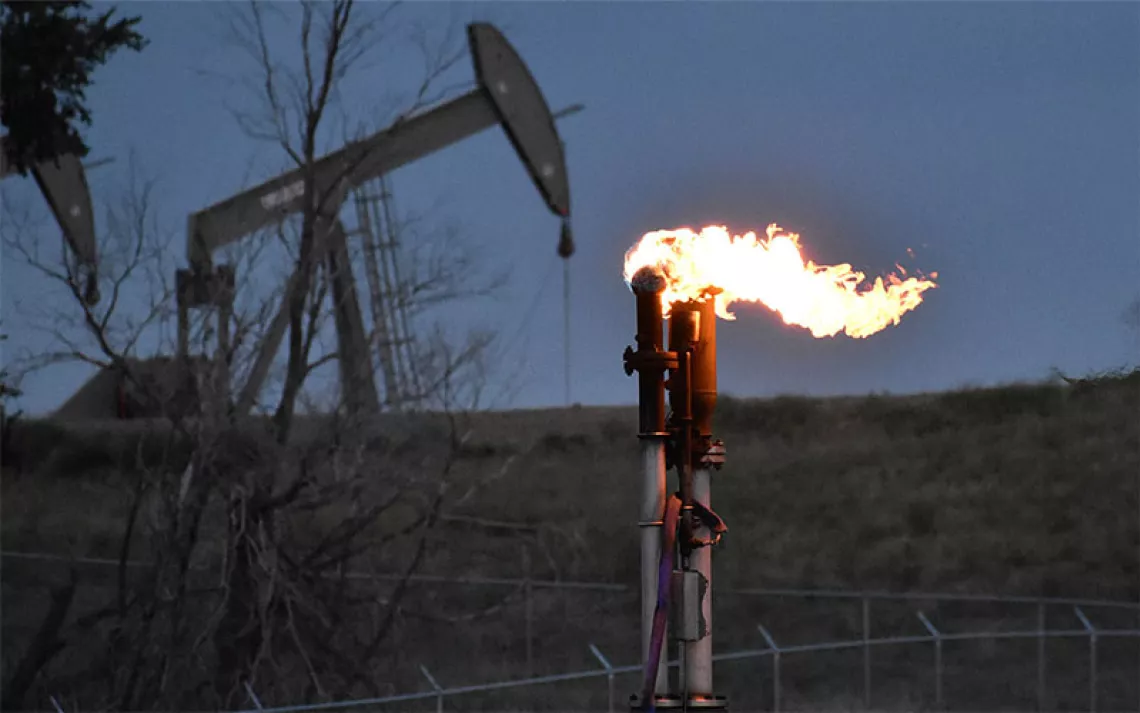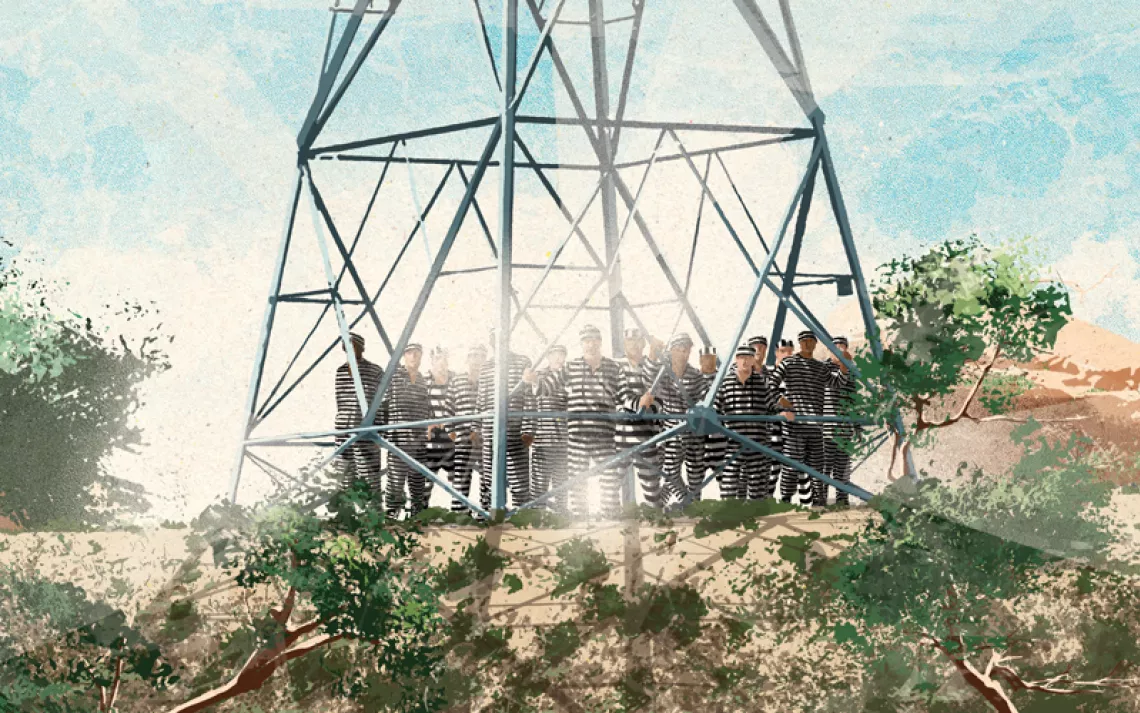Let It Burn: Congress Allows Flaring, Venting of Methane Gas
An Obama-era regulation prevented waste, was good for the climate, created jobs. So it had to go.
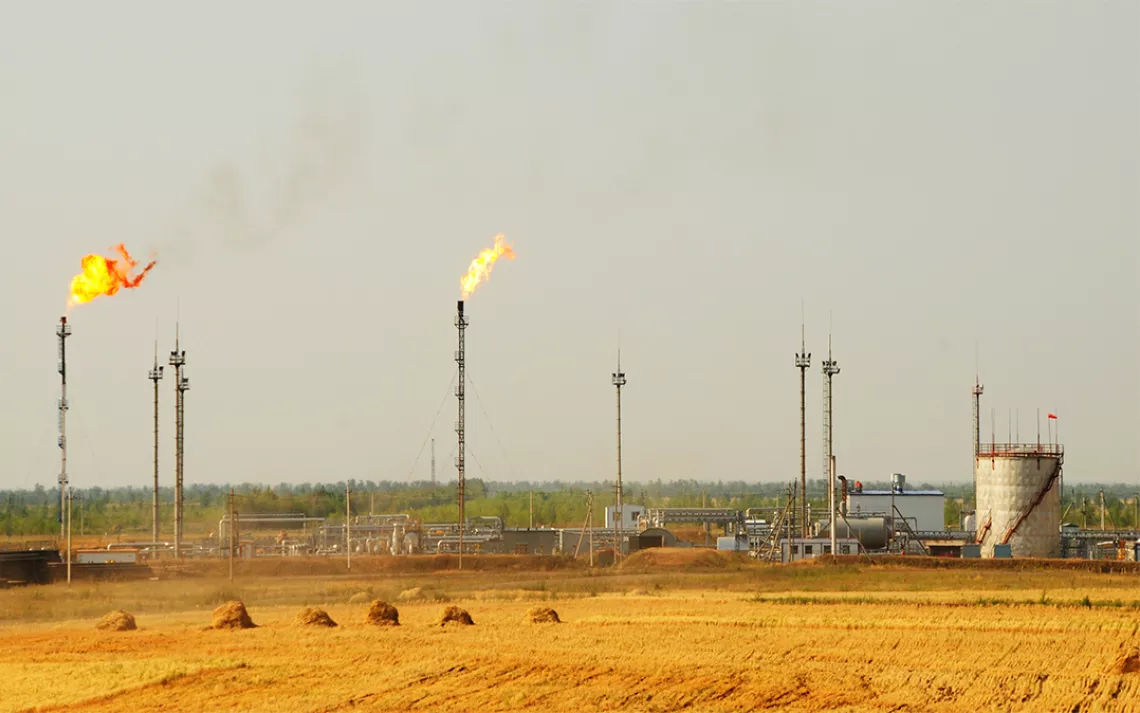
Photo by HHakim/iStock
What It Is: Oil and gas drilling is a messy and imprecise business. Oil drillers, for example, often hit pockets of unwanted natural gas, which they simply vent into the atmosphere. (Sometimes the gas, largely methane, is burned off, a process known as “flaring.”) Fugitive methane emissions are a big problem, though. For starters, methane is an extremely powerful greenhouse gas, 86 times more powerful than carbon dioxide over 20 years. Leaks are often accompanied by other hydrocarbons, like benzene, which are carcinogenic. And when the venting takes place on U.S. public or tribal lands, the taxpayers lose out on potential royalties to the tune of some $330 million a year.
In November 2016, after the election, the Bureau of Land Management released its Methane and Waste Prevention Rule. “We are proving that we can cut harmful methane emissions that contribute to climate change, while putting in place standards that make good economic sense for the nation,” said then-interior secretary Sally Jewell. The modest rule would phase in cutbacks (but not elimination) of flaring, increased inspection for leaks, and replacement of some old and inefficient equipment. It was the cornerstone of the Obama administration’s Climate Action Plan to cut emissions from oil and gas facilities by 40 to 45 percent from 2012 levels by 2025. Similar regulations adopted several years ago in Colorado have resulted in decreased methane leaks and increased economic growth.
Why the GOP Wants to Get Rid of It: It costs oil and gas producers money. The industry calls the rule “duplicative,” saying that it is already undertaking voluntary efforts, resulting in methane-emissions reductions of 21 percent since 1990—a claim disputed by the EPA’s Inventory of U.S. Greenhouse Gas Emission and Sinks (see graphic below, with earlier industry number). Moreover, the new Republican Congress is embarking on a sweeping deregulation project, one it shares with President Donald Trump.
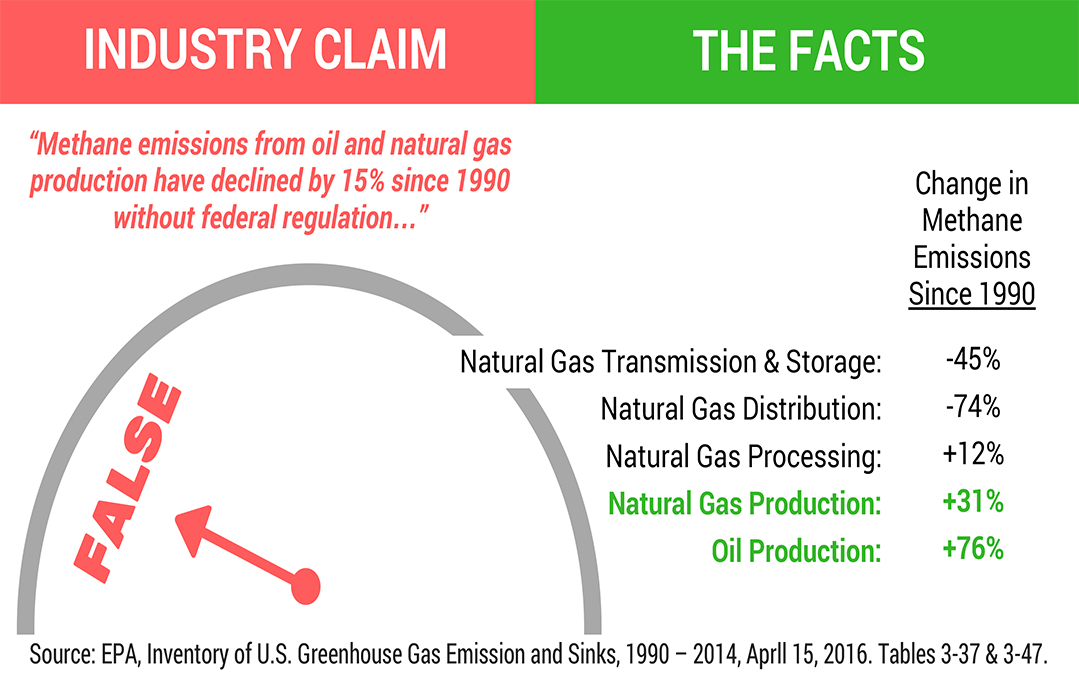
Courtesy of the House Natural Resources Committee Democrats
Status: On February 3, the House passed H.J. Res. 36, which would kill the rule. Their mechanism for doing so is the Congressional Review Act, which allows straight majorities in Congress to overturn rules that were passed in the previous 60 working days (the GOP used the same process earlier in the week to scrap the Stream Protection Rule). As with that action, future administrations would be prohibited from establishing “substantially similar” legislation without congressional approval.
What You Can Do
Stop Congress From Overturning Important Climate Regulations: Send a message to your senators in Congress urging them to vote NO on the CRA, and to stop any rollbacks on our environmental and public health protections. Send a message today!
 The Magazine of The Sierra Club
The Magazine of The Sierra Club
